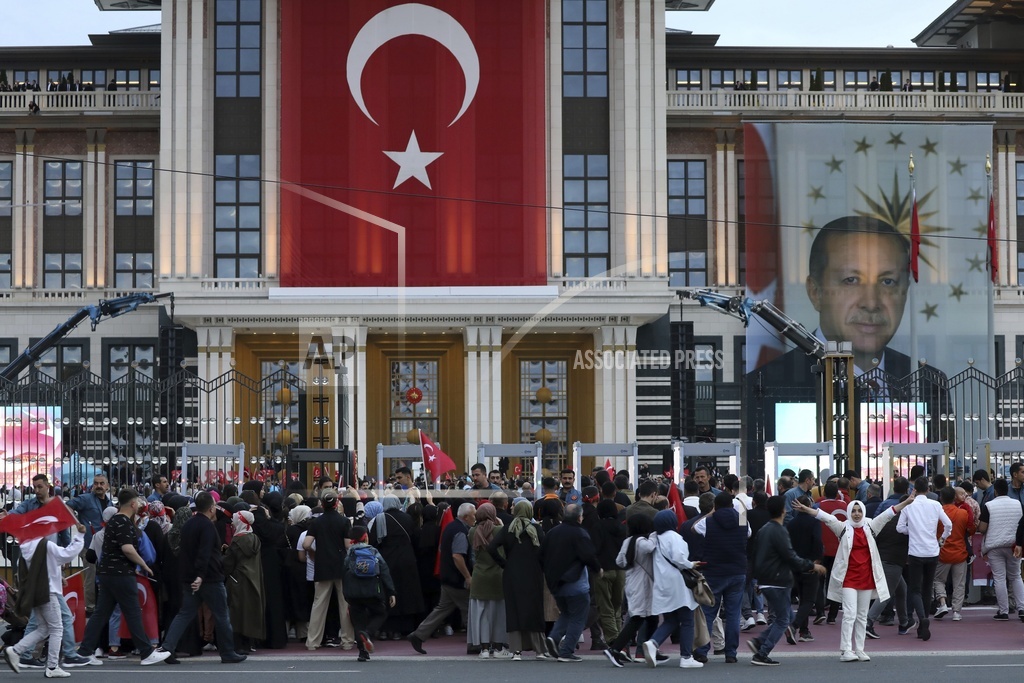
Turkey’s longest-running leader Recep Tayyip Erdoğan will stay on as President for another five-year term, after a first-of-its-kind runoff election on Sunday saw him secure victory over his rival, opposition alliance candidate Kemal Kılıçdaroğlu.
With over 98% of this Sunday’s votes counted, Erdoğan became the clear poll winner after securing 52.1% of the vote to Kılıçdaroğlu’s 47.9%, according to the state Anadolu news agency.
“I thank each member of our nation for entrusting me with the responsibility to govern this country once again for the upcoming five years,” Erdoğan said.
“The only winner today is Turkey,” he added.
The 69-year-old Erdoğan, who has led Turkey since 2003, defied polls in the first round of voting on May 14 that had showed Kılıçdaroğlu with the edge. Public anger has mounted in Turkey over the government’s response to the deadly earthquakes earlier this year that left at least 50,000 dead and runaway inflation that critics pin on his unwonted economic policies. It’s not the first political challenge Erdoğan has faced: his party, the Islamist Justice and Development (AK) Party, lost its hold over Parliament in 2015, and a failed coup attempt in 2016 sought to remove him from power. But this year’s vote has been the most significant electoral challenge to Erdoğan’s rule in 20 years.
With the election victory, Erdoğan will only continue to erode Turkey’s democratic institutions and stifle political dissent, says İhsan Yılmaz, research professor and Chair of Islamic Studies and Intercultural Dialogue at Deakin University in Australia. “There are tens of thousands—politicians, journalists, and academics in prisons now—based on fabricated charges,” Yılmaz says. “He can send a few more; that won’t be difficult for him.”
Erdoğan rivals, including Kılıçdaroğlu, capitalized on growing discontent and campaigned on a pledge to reverse Turkey’s long slide toward authoritarianism. But Erdoğan was the favorite entering the second round of voting after he defied polls and emerged as the clear frontrunner with a nearly-five percentage point lead over Kılıçdaroğlu earlier this month, albeit falling short of the 50% threshold to win on the first ballot.
In the lead-up to the second round of voting, Erdoğan continued to court nationalists and campaigned heavily on security issues. He went as far as sharing fake videos that falsely imply his opponent had links to the militant Kurdistan Workers’ Party (PKK) that has waged a decades-long fight for a separate state for some 10 million Kurds in Turkey. (Kılıçdaroğlu has disavowed the PKK and the group attacked his convoy in 2016.)
The election skewed further in Erdoğan’s favor this week after Sinan Oğan, a far-right nationalist who came third in the first-round election with some 5% of the vote, threw his support behind the Turkish President.
Kılıçdaroğlu and his allies, meanwhile, cast doubts on the veracity of the ballot data in the first round. He also appealed to nationalists by moving away from earlier campaign messages of inclusivity and vowed to expel refugees if he was elected; Turkey is home to almost 4 million refugees. But not even the support of major parties in the days before the polls were able to shore up the presidency.
Yılmaz tells TIME that Kılıçdaroğlu faced a steep uphill battle from the onset. Erdoğan and his allies control or influence key levers of the state, he says, including the media and judiciary. Kılıçdaroğlu’s Republican People’s Party (CHP) is also “weak, especially in rural areas, especially in eastern parts of Turkey and in Anatolia, in small towns and villages, so they cannot watch the ballot boxes, unfortunately,” Yılmaz adds. “This is where Erdoğan’s party is very powerful.”
More Must-Reads from TIME
- How Donald Trump Won
- The Best Inventions of 2024
- Why Sleep Is the Key to Living Longer
- Robert Zemeckis Just Wants to Move You
- How to Break 8 Toxic Communication Habits
- Nicola Coughlan Bet on Herself—And Won
- Why Vinegar Is So Good for You
- Meet TIME's Newest Class of Next Generation Leaders
Contact us at letters@time.com